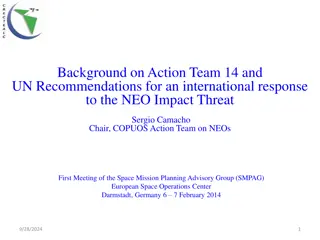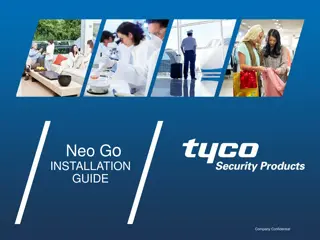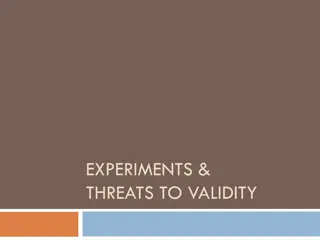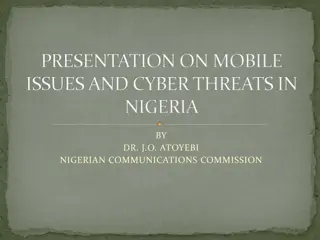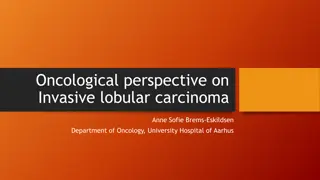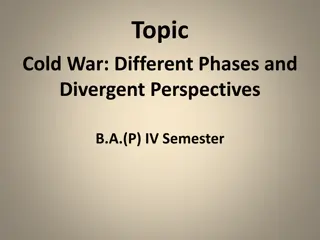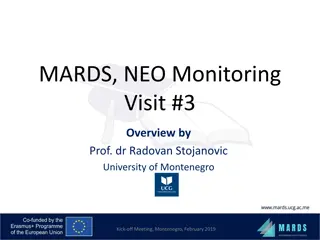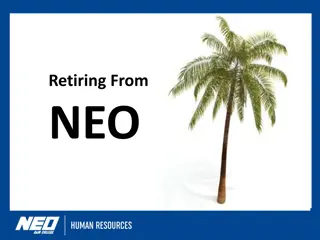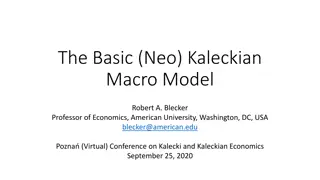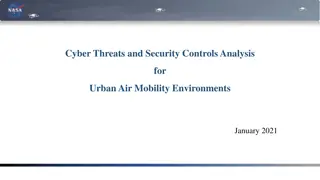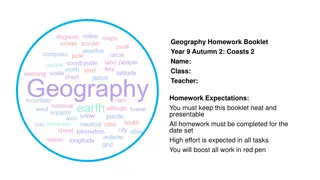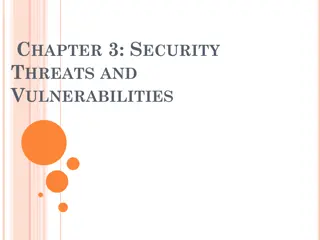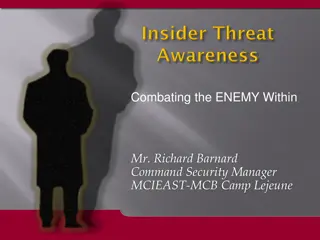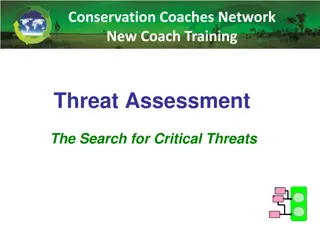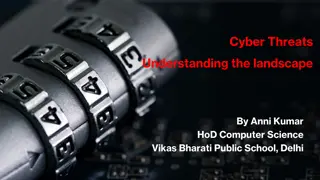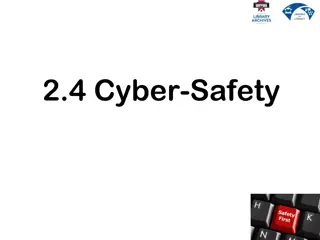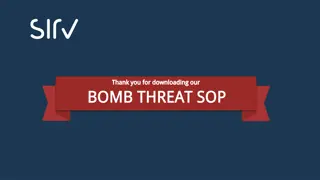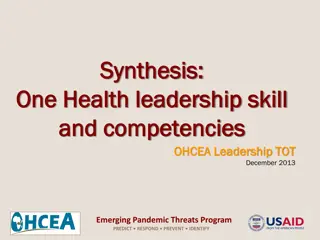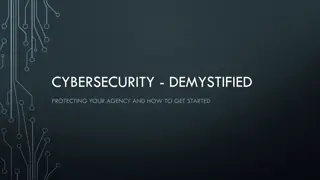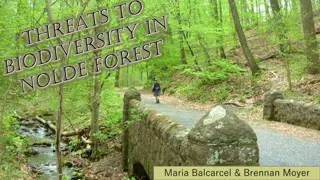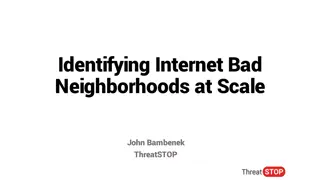UN Recommendations for Responding to NEO Impact Threats
The Action Team on NEOs, established by the United Nations, has put forth recommendations for an international response to the threat of near-Earth object impacts. This initiative stems from the work of the COPUOS and its subcommittees, aiming to address potential NEO impact scenarios through collaboration and consensus-building among UN member states. The General Assembly's approval of these recommendations signals a step forward in global preparedness for such planetary threats.
Download Presentation

Please find below an Image/Link to download the presentation.
The content on the website is provided AS IS for your information and personal use only. It may not be sold, licensed, or shared on other websites without obtaining consent from the author. Download presentation by click this link. If you encounter any issues during the download, it is possible that the publisher has removed the file from their server.
E N D
Presentation Transcript
Background on Action Team 14 and UN Recommendations for an international response to the NEO Impact Threat Sergio Camacho Chair, COPUOS Action Team on NEOs First Meeting of the Space Mission Planning Advisory Group (SMPAG) European Space Operations Center Darmstadt, Germany 6 7 February 2014 9/12/2024 1
Outline of presentation Recent agreement by the General Assembly of the United Nations that paves the way to prepare for an international response in case of a threat of a NEO impact on Earth Background, motivation and results Origin of dealing with the NEOs item in the United Nations Establishment of the Action Team on NEOs (AT-14) by the United Nations Committee on the Peaceful Uses of Outer Space Universality and governmental recognition of work by AT-14 The importance of the work of AT-14 (bottom up approach) The recommendations made by AT-14 to the United Nations Recommendations adopted by the United Nations Work to be done 12/09/2024 2
The setting The United Nations Committee on the Peaceful Uses of Outer Space (COPUOS) is an intergovernmental body with a Scientific and Technical Subcommittee (STSC) and a Legal Subcommittee (LSC) All three bodies work on basis of consensus The NEOs issue was dealt with by the STSC, mainly through a Working Group on NEOs, established in 2007, and its work was endorsed and guided by COPUOS The Action Team on NEOs was established by COPUOS in 2001 and mandated to report to the STSC 12/09/2024 3
GA Omnibus Resolution on space - 2014 In December 2013 (A/RES/68/075) [The General Assembly,] [ ] 8. Welcomes with satisfaction the recommendations for an international response to the near-Earth object impact threat, endorsed by the Scientific and Technical Subcommittee at its fiftieth session and endorsed by the Committee at its fifty-sixth session What does this mean? Note: the recommendations were made by the WG on NEOs of the STSC on the basis of the recommendations of AT-14 12/09/2024 4
Origin of NEOs issue in the United Nations UNISPACE III - 1999 A/Conf.184/6 The Space Millennium: Vienna Declaration on Space and Human Development, Resolution 1 , para (1) (c) Recommendations: (i) To improve the scientific knowledge of near and outer space by promoting cooperative activities in such areas as astronomy, space biology and medicine, space physics, the study of near- Earth objects and planetary exploration; (iii) To improve the international coordination of activities related to near-Earth objects, harmonizing the efforts directed at identification, follow-up observations and orbit prediction, while at the same time giving consideration to developing a common strategy that would include future activities related to near- Earth objects. 12/09/2024 5
Establishment of Action Teams United Nations mechanism to implement some recommendations of UNISPACE III: Action Teams, each on a specific item 2001: agreed by the Scientific and Technical Subcommittee (STSC) through its Working Group of the Whole, (A/AC.105/761, annex II, paras. 3-14) Establishment of the Action Teams agreed to: 2001: United Nations Committee on the Peaceful Uses of Outer Space (COPUOS) (A/56/20, paras 44 61) Note: All reports referenced in this presentation can be found on the web site of the United Nations Office for Outer Space Affairs (UNOOSA) at http://unoosa.org 12/09/2024 6
Mandate of Action Team on NEOs (AT-14) Establishment (2001) and terms of reference (2002) of Action Team on NEOs (AT-14) (Reports of STSC and COPUOS 2001 and 2002) Mandate (a) Review the content, structure and organization of ongoing efforts in the field of near-Earth objects (NEOs); (b) Identify any gaps in the ongoing work where additional coordination is required and/or where other countries or organizations could make contributions; (c) Propose steps for the improvement of international coordination in collaboration with specialized bodies. Open-ended membership: including intergovernmental, governmental and non-governmental space-related institutions 12/09/2024 7
Relationships: AT-14, STSC, COPUOS, General Assembly (Importance of AT-14) AT-14: Technical body, open-ended; composed of government and non-government experts (27 members; entities) Works intersessionally Prepared interim and final reports for STSC STSC:considers NEOs; agenda item (74 Member States; Dec. 2013) in Plenary through its Working Group on NEOs (governments) COPUOS considers report on NEOs of STSC and sets new mandate Set multi-year work plans for STSC (2009 2011, 2012 - 2013) General Assembly endorses report COPUOS; sets new mandates for COPUOS, STSC and LSC (193 MS) 12/09/2024 8
Relationships: AT-14, STSC, COPUOS, General Assembly (Importance of AT-14) Bottom up approach AT-14 provides input to STSC Work agreed upon by STSC and its subsidiary bodies (i.e. its Working Groups) is normally endorsed by COPUOS Because COPUOS works by consensus and each Regional Group is represented in the work of COPUOS, normally, the General Assembly (193 MS) adopts the report of COPUOS (and it recommendations) without a vote. AT-14 STSC WG on NEOs STSC COPUOS GA Thus, the GA endorses the work of experts on an item 12/09/2024 9
Report by ASEs International Panel on Asteroid Threat Mitigation 30 September 2008 - Report presented to AT 14 November 2008 - Summary of recommendations integrated into AT - 14 Interim report to STSC February 2009 - STSC agrees on multi-year workplan to prepare a proposal for international response to an NEO threat - Information, Analysis and Warning Network - Mission Planning and Operations Group - Mission Authorization and Oversight Group 12/09/2024 10
Work of the STSC STSC 2009 - 2013 Reports by international organizations, regional bodies, Member States Presentations by permanent observers (ASE, IAA, IAU, SWF, ) Presentations by Member States Interim rept - Action Team on Near-Earth Objects (2008-2013)) Information on research by MS, int l orgs & others NEOs process under a work plan 2009 to 2013 Work carried out by STSC (and its WG) & COPUOS Intersessionally by AT-14 12/09/2024 11
Drafting of international procedures for handling the NEO threat STSC 2009 NEOs process under a work plan 2009 to 2011 Work carried out by STSC (and its WG) & COPUOS Intersessionally by AT-14 Working Group (2009) [ ] Action Team tasked to, (b) Review of policies and procedures related to the handling of the NEO threat at the international level and drafting of international procedures for handling the NEO threat; 12/09/2024 12
Results & Work of AT-14 for 2012 - 2013 Final report of the Action Team on Near-Earth Objects (A/AC.105/C.1/L.330). Factual report; contains up-to-date information on: - activities and issues relating to the NEO hazard, - the current understanding of the risk posed by NEOs - the measures required to mitigate that risk an International response to the NEO impact threat (A/AC.105/C.1/L.329) Recommendations of the Action Team on NEOs (AT-14) for 12/09/2024 13
Recommendations - International response to the NEO impact threat (A/AC.105/C.1/L.329) Findings Many of the elements needed for an international response to the near-Earth object impact threat already exist. Three primary components of threat mitigation: a) discovering hazardous NEOs and identifying those requiring action; b) planning a mitigation campaign (deflection and/or disruption actions and civil defense activities); and, c) implementing a mitigation campaign, if the threat warrants it. 12/09/2024 14
Recommendations - International response to the NEO impact threat (A/AC.105/C.1/L.329) Three overarching recommendations: An International Asteroid Warning Network (IAWN) should be established A Space Mission Planning Advisory Group (SMPAG) should be established o (Framework, timeline and options for initiating and executing response activities); An Impact Disaster Planning Advisory Group (IDPAG) should be established [NOT ACCEPTED by WG on NEOs] o (Inform the civil defense community of nature of impact disasters and incorporate that community into overall mitigation planning process) 12/09/2024 15
Recommendations - International response to the NEO impact threat (A/AC.105/C.1/L.329) Two supporting recommendations: Action Team on NEOs should continue to support establishment of IAWN, SMPAG and IDPAG Establishment and work of IAWN, SMPAG, IDPAG facilitated by the United Nations on behalf of the international community o Annual reports on work by IAWN, SMPAG, IDPAG to STSC/COPUOS (item on agenda of STSC) o All recommendations to be implemented at no cost to the United Nations 12/09/2024 16
Recommendations made by the Working Groups on NEOs (February 2013) (a) contributions by a wide spectrum of organizations, should be established by linking together the institutions that were already performing, to the extent possible, the proposed functions, including discovering, monitoring and physically characterizing the potentially hazardous NEO population and maintaining an internationally recognized clearing house for the receipt, acknowledgment and processing of all NEO observations. Such a network would also recommend criteria and thresholds for notification of an emerging impact threat. An international asteroid warning network (IAWN), open to 12/09/2024 17
Recommendations made by the Working Groups on NEOs (February 2013) (b) interface with the relevant international organizations and programmes to establish linkages with existing national and international disaster response agencies to study and plan response activities for potential NEO impact events as well as to recommend strategies using well-defined communication plans and procedures to assist Governments in their response to predicted impact consequences. This does not limit the possibility of organizing, In this respect, additional international specialized advisory groups, if necessary. The international asteroid warning (IAWN) network should 12/09/2024 18
Recommendations made by the Working Groups on NEOs (February 2013) (c) established by Member States of the United Nations that have space agencies. The group should include representatives of spacefaring nations and other relevant entities. Its responsibilities should include laying out the framework, timeline and options for initiating and executing space mission response activities. The group should also promote opportunities for international collaboration on research and techniques for NEO deflection. A space mission planning advisory group (SMPAG) should be 12/09/2024 19
Recommendations made by the Working Groups on NEOs (February 2013) Two supporting recommendations: 1) facilitated by the United Nations on behalf of the international community. Future Work 2) The Working Group recommended that the Action Team on Near-Earth Objects should assist in the establishment of IAWN and SMPAG. The Action Team should inform the Subcommittee of the progress in the establishment of both groups. Once established, IAWN and SMPAG should report on an annual basis on their work. The groups recommended above should have their work 12/09/2024 20
Functions proposed by Action Team on NEOs for the SMPAG (A/AC.105/C.1/1029) Work to be done (in the coming years) 44. A SMPAG should be established by MS with space agencies. [ ] Its responsibilities should include: (a) Recommendation and promotion of key research required for planetary defence. [ ]; (b) Identification of research opportunities for international collaboration on technologies and techniques for NEO deflection. [ ] (c) Development and adoption of a set of reference missions addressing a variety of potential NEO impact scenarios and deflection and disruption possibilities. [ ]; (d) Development of decision and event timelines for a variety of potential Earth impactors and trajectories identified for mitigation campaign analysis; 12/09/2024 21
Functions proposed by Action Team on NEOs for the SMPAG (A/AC.105/C.1/1029) Work to be done (in the coming years) (e) Evaluation of technical maturity and consequences of deflection techniques; (f) Recommendations to the appropriate decision-makers, in collaboration with IAWN, on criteria and thresholds for action[ ]; (g) Recommendation of a minimum acceptable Earth-miss distance and/or other criteria for deflection targeting; (h) Recommendation of operational responsibilities for a mitigation campaign; (i) Preparation to coordinate with the relevant actors involved in the implementation of the threat response; 12/09/2024 22
Functions proposed by Action Team on NEOs for the SMPAG (A/AC.105/C.1/1029) Work to be done (in the coming years) (j) Identification of any potential legal issues (e.g. liabilities) that may arise in undertaking NEO mitigation actions or selecting any likely mitigation option; (k) Communication of its activities to the international community; (l) Provision of a yearly briefing to the Committee on the Peaceful Uses of Outer Space on the status of its activities. 12/09/2024 23
Functions proposed by Action Team on NEOs for the SMPAG (A/AC.105/C.1/1029) Work to be done (in the coming years) 45. The space mission planning advisory group could be organized and function in a manner similar to the Inter-Agency Space Debris Coordination Committee, with the position of Chair rotating among representatives of spacefaring nations and activities supporting the terms of reference of the group being undertaken by institutions of each member State. 12/09/2024 24
Still to be further determined In cases of credible threat, inform about IAWN Could establish in case of credible threat OOSA/ COPUOS SMPAG Ad-hoc group Involved nations 12/09/2024 25
Thank you CRECTEALC Luis Enrique Erro No. 1 Santa Mar a Tonantzintla San Andr s Cholula, Puebla C.P. 72840, M xico Tel: + (52 222) 266 3100 Ext. 2317 Fax: + (52 222) 266 3100 Ext. 8302 Web: http://www.crectealc.org/ 12/09/2024 26


